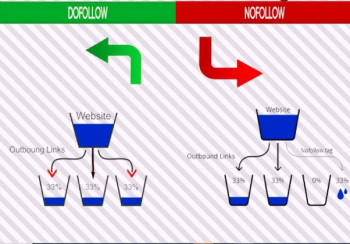In the competitive world of online visibility, mastering all SEO techniques is crucial to rank your website on Google and drive organic traffic. Whether you’re a beginner or a professional, this guide will help you understand On-Page SEO, Off-Page SEO, Technical SEO, Local SEO, and Content SEO to improve your rankings effectively.
Table of Contents
-
What is SEO?
-
Why is SEO Important?
-
Types of SEO
-
On-Page SEO
-
Off-Page SEO
-
Technical SEO
-
Local SEO
-
Content SEO
-
-
Advanced SEO Techniques
-
SEO Tools You Should Use
-
Frequently Asked Questions
-
Final Thoughts
1. What is SEO?
SEO (Search Engine Optimization) is the process of optimizing your website to improve its visibility in search engine results pages (SERPs) for relevant keywords. It involves technical, content, and link strategies to ensure your site is discoverable and valuable to users.
2. Why is SEO Important?
-
Drives Organic Traffic: Helps you get free traffic from Google and other search engines.
-
Builds Credibility: Users trust websites that appear on the first page.
-
Increases Engagement and Conversions: Quality traffic leads to better sales or ad revenue.
-
Cost-Effective: Long-term investment compared to paid advertising.
3. Types of SEO
a) On-Page SEO
Focuses on optimizing individual pages to rank higher, including:
-
Keyword Research: Use tools like Google Keyword Planner or Ahrefs.
-
Title Tags & Meta Descriptions: Write compelling and keyword-rich titles.
-
Header Tags (H1, H2, H3): Structure your content for readability.
-
Internal Linking: Connect relevant pages to distribute authority.
-
Image Optimization: Use descriptive alt texts and compress images.
-
Content Quality: Ensure the content is original, helpful, and in-depth.
b) Off-Page SEO
Refers to actions outside your website to improve rankings:
-
Backlink Building: Acquire quality backlinks from authority websites.
-
Guest Posting: Publish on other sites with links back to your content.
-
Social Media Signals: Share your content for visibility and engagement.
-
Brand Mentions: Build your brand authority through mentions across platforms.
c) Technical SEO
Focuses on improving the technical aspects of your website:
-
Site Speed Optimization: Use tools like Google PageSpeed Insights.
-
Mobile-Friendliness: Ensure your website is responsive on all devices.
-
XML Sitemap: Submit your sitemap to Google Search Console.
-
Robots.txt: Guide search engines on which pages to crawl.
-
HTTPS: Secure your site with SSL certificates.
-
Fix Crawl Errors: Identify and resolve broken links and 404 errors.
d) Local SEO
Essential for businesses targeting local customers:
-
Google My Business Optimization
-
Local Keyword Targeting
-
NAP Consistency (Name, Address, Phone)
-
Local Listings and Citations
-
Collecting Customer Reviews
e) Content SEO
Creating and optimizing content that ranks:
-
Write high-quality, long-form content targeting user intent.
-
Use LSI keywords and related terms naturally.
-
Update old content to keep it relevant.
-
Add FAQs to capture featured snippets.
-
Use structured data/schema markup for rich snippets.
4. Advanced SEO Techniques
-
Topic Clustering: Create pillar content with supporting cluster posts.
-
Using Schema Markup: Improve CTR with rich snippets.
-
Voice Search Optimization: Use conversational keywords.
-
Core Web Vitals Optimization: Focus on loading, interactivity, and visual stability.
-
Video SEO: Optimize video titles, descriptions, and transcripts.
5. SEO Tools You Should Use
-
Google Search Console: Monitor performance and fix issues.
-
Google Analytics: Track traffic and user behavior.
-
Ahrefs / SEMrush: Keyword research and competitor analysis.
-
Yoast SEO / Rank Math: On-page SEO optimization for WordPress.
-
Screaming Frog: Technical audits.
-
Ubersuggest: Keyword ideas and traffic analysis.
6. Frequently Asked Questions
Q: How long does SEO take to show results?
A: Typically 3-6 months, depending on competition and consistency.
Q: Can I do SEO myself?
A: Yes, you can learn and implement SEO yourself, but it requires consistent effort.
Q: What is the most important factor in SEO?
A: High-quality content and authoritative backlinks are the most impactful.
7. Final Thoughts
Mastering all SEO techniques is essential for growing your online presence sustainably. By focusing on technical health, quality content, link building, and user experience, you can achieve higher rankings and drive consistent organic traffic to your website.
Start implementing these SEO techniques today to dominate your niche on Google!









